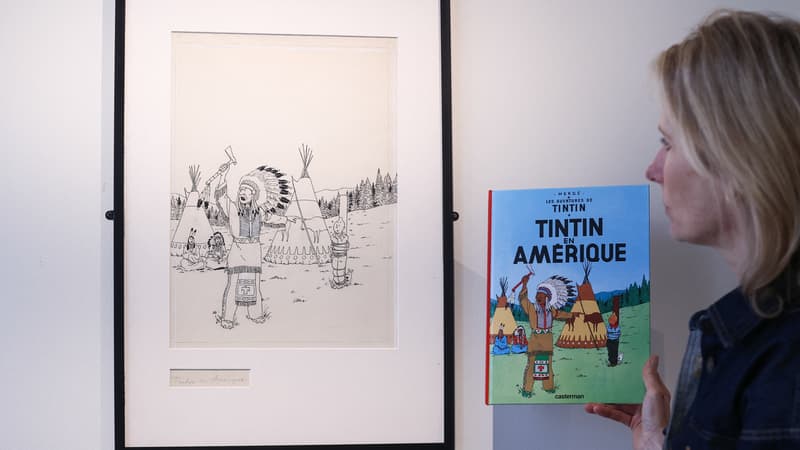Original drawing by Hergé made in 1942 for the cover of tintin in america it sold for 2.16 million euros on Friday in Paris, including expenses, far from the record of 3.2 million euros held by another illustration of the young Belgian reporter with a puff.
the drawing of tintin in america However, it registers a “world record for an original drawing by Hergé in black and white,” said the Artcurial auction house when announcing the result (2,158,400 euros).
Initially estimated at between €2.2 and €3.2 million, it depicts a large Amerindian chief dressed in traditional dress pointing an accusing finger at a bound Tintin with one hand and brandishing an axe with the other. The drawing is especially valuable because of its large size, 52.3 by 36 cm, larger than an A3 sheet.
The trajectory of this exceptional piece is unknown. The seller wanted to remain anonymous, and the auction house only specified that it was a Belgian collector.
A record of 3.2 million euros
In January 2021, Artcurial set a world record with Hergé’s illustration project (Indian ink, gouache and watercolor) of the original cover of the blue lotus. The 1936 drawing was sold for 3.2 million euros including expenses.
The drawing sold on Friday is not strictly the original cover of tintin in america. The album in which Tintin goes to Chicago and deals with the underworld appears for the first time in black and white in 1932, with a cover where Tintin bivouacs dressed as a cowboy, then another from 1937 where the hero rides a galloping horse.
Hergé redesigned the cover in 1942, this time with the young hero holding a totem pole. This image will become world famous by adorning the color version of the album, published in 1946 and constantly reissued ever since, in tens of millions of copies in all.
tintin in america is one of the series’ biggest hits, along with Tintin in the Congoof blue lotus or of we walked on the moon.
This refined example of the Hergé line, Georges Rémi of his real name (1907-1983), in India ink, graphite, blue pencil, and gouache, stands at the crossroads of art history and popular culture.
Source: BFM TV


